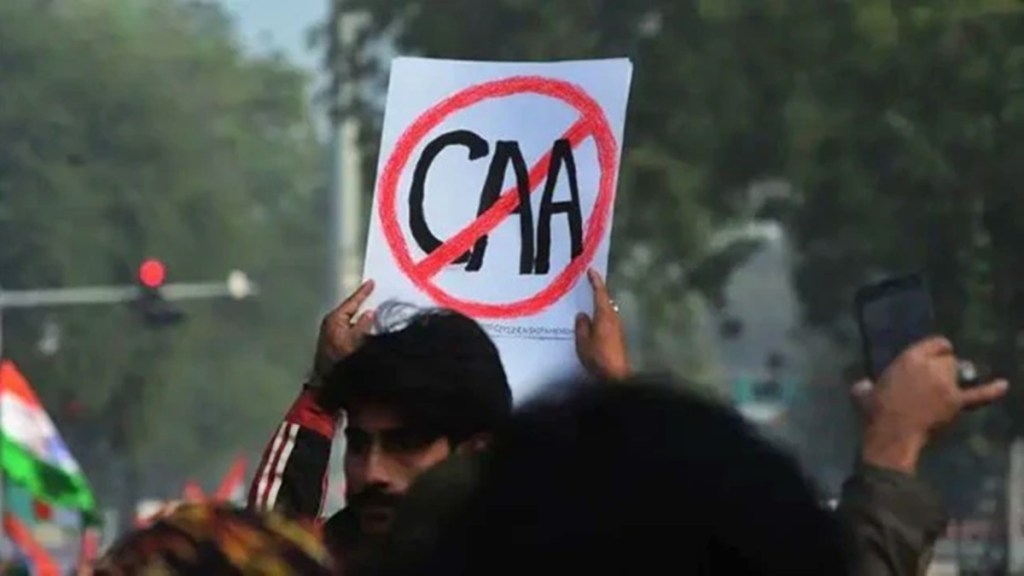Shortly after the central government notified the rules of the Citizenship Amendment Act on Monday, Maulana Shahabuddin Razvi Bareilvi, president of All India Muslim Jamaat, extended a warm welcome to the legislation. In an effort to dispel concerns within the Muslim community, he addressed misunderstandings surrounding the law, stating that it has nothing to do with Muslims.
“The Govt of India has implemented the CAA law. I welcome this law. This should have been done much earlier but better late than never… There are a lot of misunderstandings among the Muslims regarding this law. This law has nothing to do with Muslims,” as ANI reported.
Also Read:CAA rules notification: What changes as Citizenship Amendment Act comes into force?
Speaking to reporters, Maulana noted that previously, there was no legislation to grant citizenship to non-Muslims from Pakistan, Afghanistan, and Bangladesh who had faced atrocities based on religion. “Crores of Indian Muslims will not be affected by this law at all… This law is not going to take away the citizenship of any Muslim… In the past years, it has been seen that there were protests, it was because of misunderstandings. Some political people created misunderstandings among the Muslims… Every Muslim of India should welcome the CAA…,” he added.
‘Unconstitutional’: Opposition reacts to CAA implementation
While some hailed the implementation of the rule for CAA, others opposed it, calling it “unconstitutional” and unfair. All India Majlis-E-Ittehadul Muslimeen (AIMIM) spokesperson Waris Pathan on Tuesday hit out at the Centre, accusing the BJP of ‘polarization’ ahead of elections. Pathan said, “Understand the chronology. Look at the timing. Dates are going to be announced; the 2024 Lok Sabha elections are going to take place, and the government suddenly thinks of notifying it.”
He questioned the government’s inaction over the past five years and asserted that the sudden notification was an attempt to polarize voters before the elections.
Also Read:Assam: Opposition calls for ‘Hartal’, statewide protests erupt as CAA implementation sparks outcry
“What was it doing for five years? Why not bring it earlier? The government is trying to polarise it before elections just because they have failed on development fronts. They don’t have answers to questions. So, they have brought this. We objected to it earlier and we say today as well that this law is unconstitutional. We object to it.”
Meanwhile, AIMIM Chief Asaduddin Owaisi also questioned the timing of the implementation of the act, adding that the legislation takes inspiration from the thoughts of Nathuram Godse, and is meant to bring division in the country.
Also Read: CAA India Live Updates
“Aap chronology samajhiye, pehle election season aayega, phir CAA rules aayenge. Our objections to CAA remain the same. CAA is divisive and based on Godse’s thought that it wanted to reduce Muslims to second-class citizens. Give asylum to anyone who is persecuted but citizenship must not be based on religion or nationality,” Asaduddin Owaisi posted on X.
Tamilaga Vettri Kazhagam leader and actor Vijay also opposed the notification of the CAA rules. He stated that in the circumstances where the nation’s people live with social harmony, engaging in divisive politics and introducing acts like CAA 2019 is unnecessary. He further added that the ruling government in the state should assure that they won’t implement this law in Tamil Nadu.
Also Read:Centre notifies Citizenship Amendment Act rules in big move ahead of Lok Sabha polls
Centre notifies CAA rules
On Monday evening, the Union Home Ministry notified rules for implementation of the Citizenship Amendment Act (CAA), days ahead of the announcement of the Lok Sabha elections schedule.
Enacted by the Narendra Modi government and successfully passed by Parliament in 2019, the CAA has the primary objective of granting Indian citizenship to persecuted non-Muslim migrants. This inclusive group comprises Hindus, Sikhs, Jains, Buddhists, Parsis, and Christians who fled from Bangladesh, Pakistan, and Afghanistan and arrived in India before December 31, 2014.

